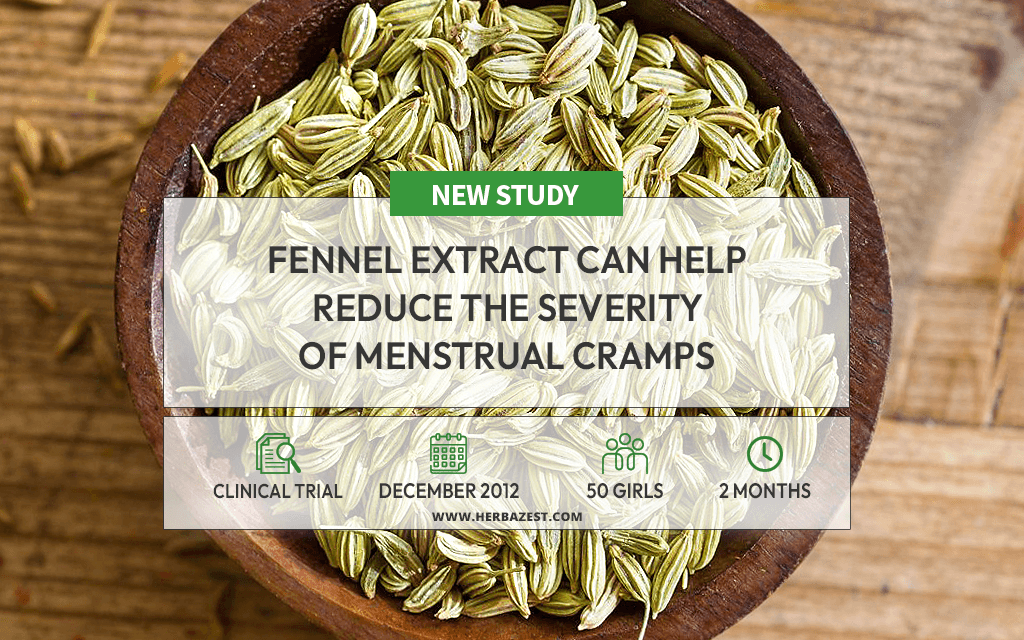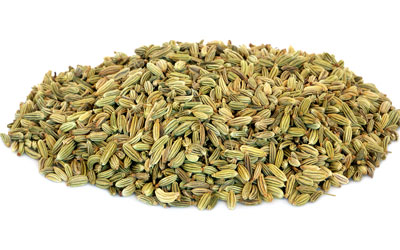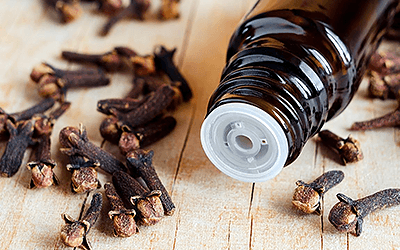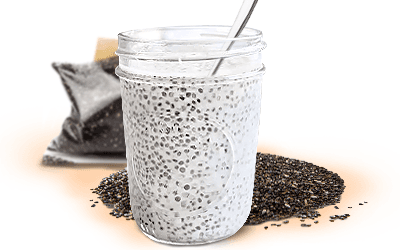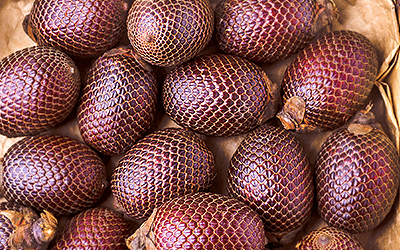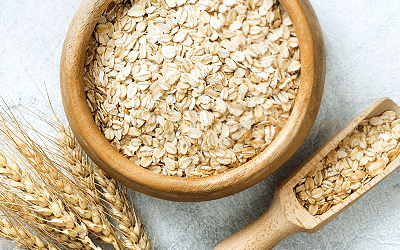Painful periods, medically called dysmenorrhea, are the most common menstrual disorder, affecting as many as nine out of 10 women.1 They are known to take a huge toll on women's everyday life and health, leading to work and school absenteeism as well as reduced quality of life.
Several animal studies have shown that fennel possesses antispasmodic properties, which may potentially become useful in alleviating dysmenorrhea. The purpose of this human trial was to further assess the effects of fennel on treating painful periods.
The Study
This clinical trial, conducted at the Iranian Babol University of Medical Sciences and Health Services, involved 50 girls with primary dysmenorrhea between the ages of 15 and 24.
They were assigned to two groups with two different treatment regimens. Starting on the first day of their periods and continuing for three consecutive days, participants in the study group were taking one capsule with 30 mg of fennel extract four times daily, while those in the control group were taking placebo capsules with wheat flour.
Researchers assessed participants' pain severity before the trial and for two menstrual cycles in a row.
The Results
Fennel administration substantially reduced pain severity scores in the first five hours from its consumption (from 5.56 to 1.20).
Over the course of three days, there was a significant reduction in the pain severity scores in the fennel group (from 5.56 before treatment to 1.84 on the first day; 1.20 on the second day, and 0.67 on the third day of treatment).
There were some reductions pain severity scores in the placebo group as well, but not as significant as in the fennel group.
More than half of the participants rated the fennel treatment as “excellent,” in comparison to 8% in the placebo group.
What Does this Mean?
The results of this clinical trial demonstrate that fennel can alleviate painful periods.
These findings are important because many women with dysmenorrhea do not respond to pharmacological pain relievers, while others struggle with side effects. Using fennel for painful menstruation is a natural and inexpensive alternative to pain medications.
Other herbs that may be beneficial in alleviating painful periods are aguaje, cinnamon, and oregano.
Sources
- AYU - An International Quarterly Journal of Research in Ayurveda, Effect of fennel on pain intensity in dysmenorrhoea: A placebo-controlled trial, 2012
Footnotes:
- Epidemiologic Review. (2013). The prevalence and risk factors of dysmenorrhea. Retrieved March 23, 2021 from https://pubmed.ncbi.nlm.nih.gov/24284871/
